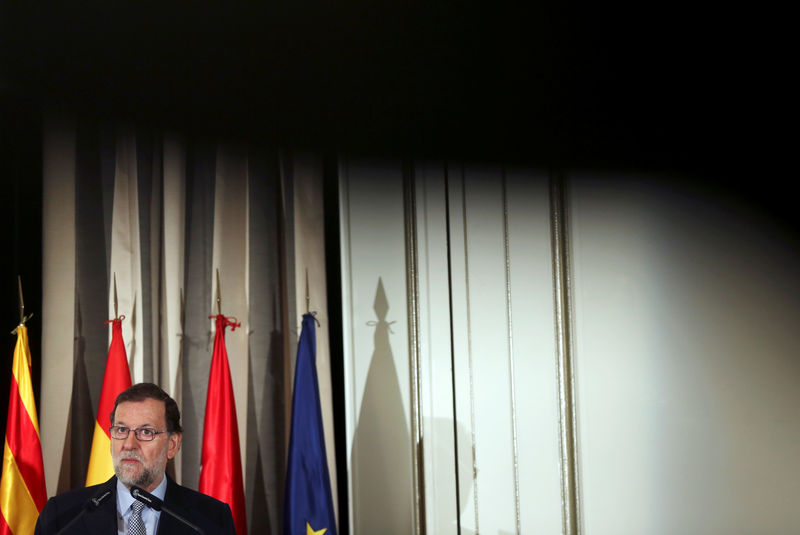By Sarah White and Angus Berwick
MADRID (Reuters) - Spain is days away from forming its first real government in 10 months, but it can't come soon enough for Susana Morales whose charity needs approval to expand an adoption service -- part of a mountainous backlog of work awaiting the new administration. "Nothing is being processed. It's causing a lot of damage," a frustrated Morales said, referring to the lack of a fully functioning government since last December when Spain went to the polls for the first of two inconclusive elections.
Prime Minister Mariano Rajoy stayed in office as a caretaker without full powers, and is now finally set to form a full-fledged minority conservative government by next weekend after his socialist opponents agreed on Sunday not to block it.
Morales's outstanding business is one of countless tasks piled up in the new government's inbox.
Others include the appointment of 44 new envoys, the ratification of 64 international treaties and a renewed pursuit of business interests abroad, neglected during the political paralysis at home.
Without Spanish state visits to help open doors in Iran, for example, the country's business community has been a virtual spectator to the gradual opening up of that country this year.
"Spain is not only losing its presence and visibility and is moving away from centers of power, it is also a brake on growth and on job creation," said an internal foreign office report from September seen by Reuters, which described Spain as a "lame duck." Even agreements reached by Rajoy before he lost his majority have yet to be signed off formally, including a 10-year extension on a deal with NASA to operate a tracking station outside Madrid which supports interplanetary space missions.
Spain runs the risk of fines for not implementing a raft of European Union directives, such as one regulating the sale of explosives, and it has yet to approve its participation in high-profile projects such as a new China-based development bank or the Paris agreement to curb climate-warming emissions.
The daunting backlog threatens to swamp Rajoy's incoming government at the outset, making a difficult situation even worse for a leader who can do very little without the consent of a hostile parliament.
TACKLING POLICIES
Even some of the most simple tasks may require months of work.
Rajoy's People's Party passed a new child protection law in 2015 when it was last in power, but never developed the regulations around it, which according to several agencies has hampered foreign adoptions.
"Even when we get a government it won't be automatic," said Morales. Her "Family in colors" charity lost out on new licenses to operate in Brazil and Haiti in the past year when it could not get the paperwork rubberstamped in Madrid.
Before Rajoy can even attempt to introduce his own party's policies - such as potential tax cuts or further labor market changes to encourage permanent hires - he will also have to contend with challenges from rivals and a territorial crisis.
Opposition parties have already teamed up to try and overturn an unpopular renewable energy bill seen as penalizing households which want to use solar panels, as well as the PP's last education overhaul.
The political stalemate has also made it difficult to respond to the push for independence by the wealthy northeastern Catalonia region, which aims to hold a referendum next year on breaking away.
Foremost in Rajoy's in-tray will be the country's budget plans for next year - a major test of the minority government's chances of eking out its four year term in a highly fragmented parliament.
To avoid European Commission fines, Spain will have to find at least 5 billion euros ($5.4 billion) in spending cuts or revenues to meet its 2017 deficit targets, and fresh austerity measures are likely to be fiercely opposed by rival parties.
Spain's Socialists, in disarray after their leader quit earlier this month, have yet to clarify whether they have agreed to back a budget, without which the country will be plunged back into political turmoil and potentially have to return to the ballot box next year.

"It will be a weak government but it will have a strong card to play - the permanent threat of elections," said Jose Manuel Gonzalez-Paramo, professor of economics at Spain's IESE business school and an executive board member at BBVA (MC:BBVA)